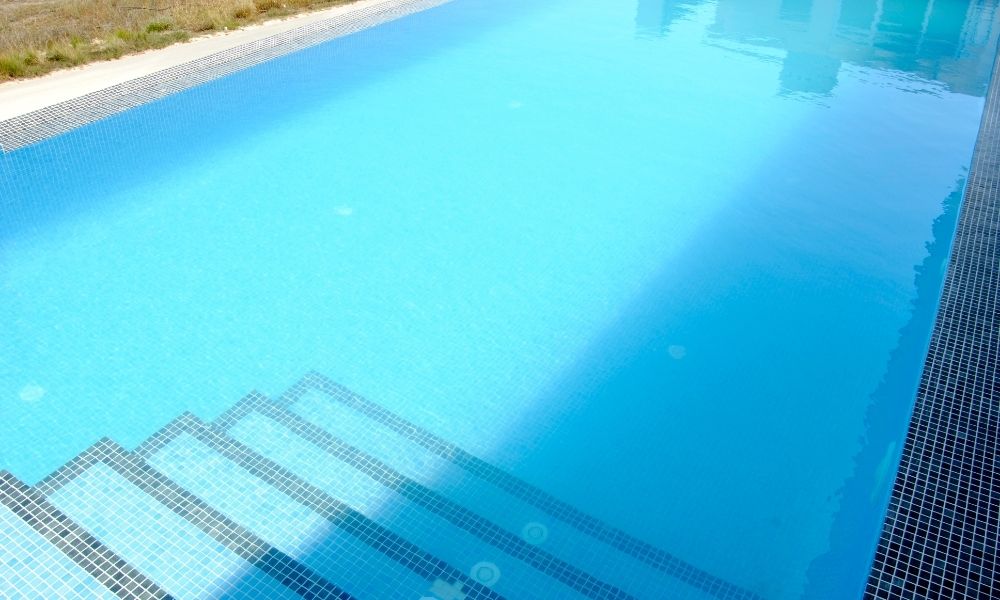
Why Is My Pool Cloudy? Causes and Solutions
Why is my pool cloudy? Is the water so murky that you’re unsure if it’s safe to swim? Cloudy pool water isn’t just visually unappealing—it can signal underlying issues with water quality and maintenance. Clear water represents a well-maintained pool, but when it turns cloudy, it could impact both safety and health. Cloudy water may hide potential hazards or even cause skin and eye irritation, making it less inviting for swimmers. So, if you’re asking, “Why is my pool cloudy?” let’s explore the root causes and solutions to keep your pool safe, clear, and refreshing.
Causes Of Cloudy Pool Water
Cloudy pool water can be more than an eyesore—it often signals underlying maintenance issues or water imbalances. Addressing the cause early helps maintain a safe and inviting pool environment. Understanding the reasons behind cloudy water also allows you to tackle minor issues before they become bigger problems, saving time and effort on future repairs. Below, we’ll explore the most common causes of cloudy water to help you keep your pool clean, clear, and safe for everyone. Cloudy water usually has a milky look that doesn’t allow you to see the bottom of the pool. With that appearance, it is reasonable not to want to enter the pool anymore. First, we must warn you that you shouldn’t enter a pool with cloudy water. Since you can not see the depth of the pool, people who cannot swim could even drown. Plus, there are more chances of experiencing irritated eyes or even catching an infection. In general, pool water gets cloudy because of poor pool maintenance. However, when you have scheduled pool maintenance, it’s reasonable to have doubts about the possible causes of cloudy water. Here are three of the most common reasons for cloudy pool water to help you answer the question “Why is my pool cloudy?” and, therefore, help you to determine the solution:
- Defective Or Poorly Maintained Filtration Systems
- Unbalance Pool Chemicals
- Debris In Pool Coming From Environmental Conditions
Defective Or Poorly Maintained Filtration Systems
One of the primary reasons for cloudy pool water is an ineffective or malfunctioning filtration system. To keep your pool water sparkling, the filtration system should ideally run at least 8 hours a day, constantly removing debris and contaminants. However, when filters aren’t maintained, or if the system isn’t operating correctly, water can quickly turn cloudy.
Types of Filtration Systems
Different filtration systems—such as sand, cartridge, and DE (diatomaceous earth) filters—require unique maintenance routines. Sand filters need regular backwashing, cartridge filters require periodic cleaning, and DE filters benefit from consistent backwashing and new DE powder for peak performance. Understanding your filter type helps you know exactly how to keep it in top shape.
Simple Troubleshooting Steps
If your pool water starts to look cloudy, try these quick troubleshooting steps to determine if the issue is with the filter:
- Backwash the Filter: For sand and DE filters, backwashing can often remove built-up debris and improve performance.
- Clean Filter Cartridges: Cartridge filters require regular rinsing to keep them working effectively.
- Clear Skimmer Baskets: Debris can accumulate in skimmer baskets, reducing the system’s efficiency. Regularly check and empty them.
If you’ve tried these steps and the water still appears cloudy, it might be time to consult a professional. A faulty filtration system may need repairs, or in some cases, replacing the filter entirely can restore your pool’s clarity. 
Unbalance Pool Chemicals
In pool sanitation, chlorine, pH, alkalinity, and calcium hardness ensure clean, safe, and clear water. When these chemical levels are improper (too much or too little), your pool water can become cloudy. An incorrect chemical level can typically affect the others. With a high pH level, calcium hardness increases and becomes difficult to dissolve. In contrast, insufficient pH levels reduce chlorine’s effectiveness. High total alkalinity impacts pH levels, calcium hardness, and so on. To find out the level of each component, consider purchasing a simple kit that shows the exact level of each chemical in the pool. The Center for Disease Control and Prevention (CDC) recommends the following balance:
- pH levels between 7.2 and 7.8,
- A free chlorine level of at least 1ppm and 3 in hot tubs
- Total alkalinity 80 to 120 ppm
- Calcium hardness should be between 200 ppm and 400 ppm, ideally.
Debris In Pool Coming From Environmental Conditions
Even with balanced chemicals and a fully functional filtration system, environmental factors can still cloud your pool water. Weather events, like rainstorms, can introduce acidic elements that disrupt your pool’s chemical balance, while everyday debris—such as dust, pollen, leaves, and even bird droppings—can quickly build up, affecting water clarity. When debris accumulates, it not only slows down the filtration process but also creates an environment where algae can thrive.
Seasonal Maintenance Tips
To keep environmental contaminants from clouding your pool, consider these seasonal maintenance tips:
- Use a Pool Cover: A high-quality cover can prevent debris from entering your pool, especially during rainstorms or when the pool isn’t in use.
- Skim Regularly: Use a skimmer net daily to remove surface debris before it sinks and affects water quality.
- Brush and Vacuum: Regular brushing and vacuuming can help prevent algae growth and keep your pool surfaces clean.
Preventive Measures After Rain
After a rainstorm, it’s a good idea to check your pool’s chemical balance, as rainwater often has acidic properties that can lead to cloudiness. If the rain has significantly altered your pool’s clarity, shocking the pool—or adding a high dose of chlorine—can help eliminate contaminants and restore balance. This step is also helpful after pool parties or during hot weather when more debris and bacteria tend to accumulate. Taking these preventive measures against environmental debris not only keeps your pool looking clean but also helps maintain a healthy swimming environment. 
Get Rid of Cloudy Pool Water With Professional Pool Assistance
Understanding the causes of cloudy pool water—from filtration issues to chemical imbalances and environmental debris—can help you enjoy a safe, crystal-clear pool. Regular maintenance is essential to keeping everything in balance, but sometimes, a professional touch can make all the difference. Whether you’re tackling the basics on your own or need assistance with more complex issues, having an expert on call ensures your pool stays in perfect condition year-round. Ready to dive into a clear, inviting pool? Reach out today for expert assistance with maintenance, repairs, or even a complete pool makeover. Make your pool the oasis it was meant to be!




